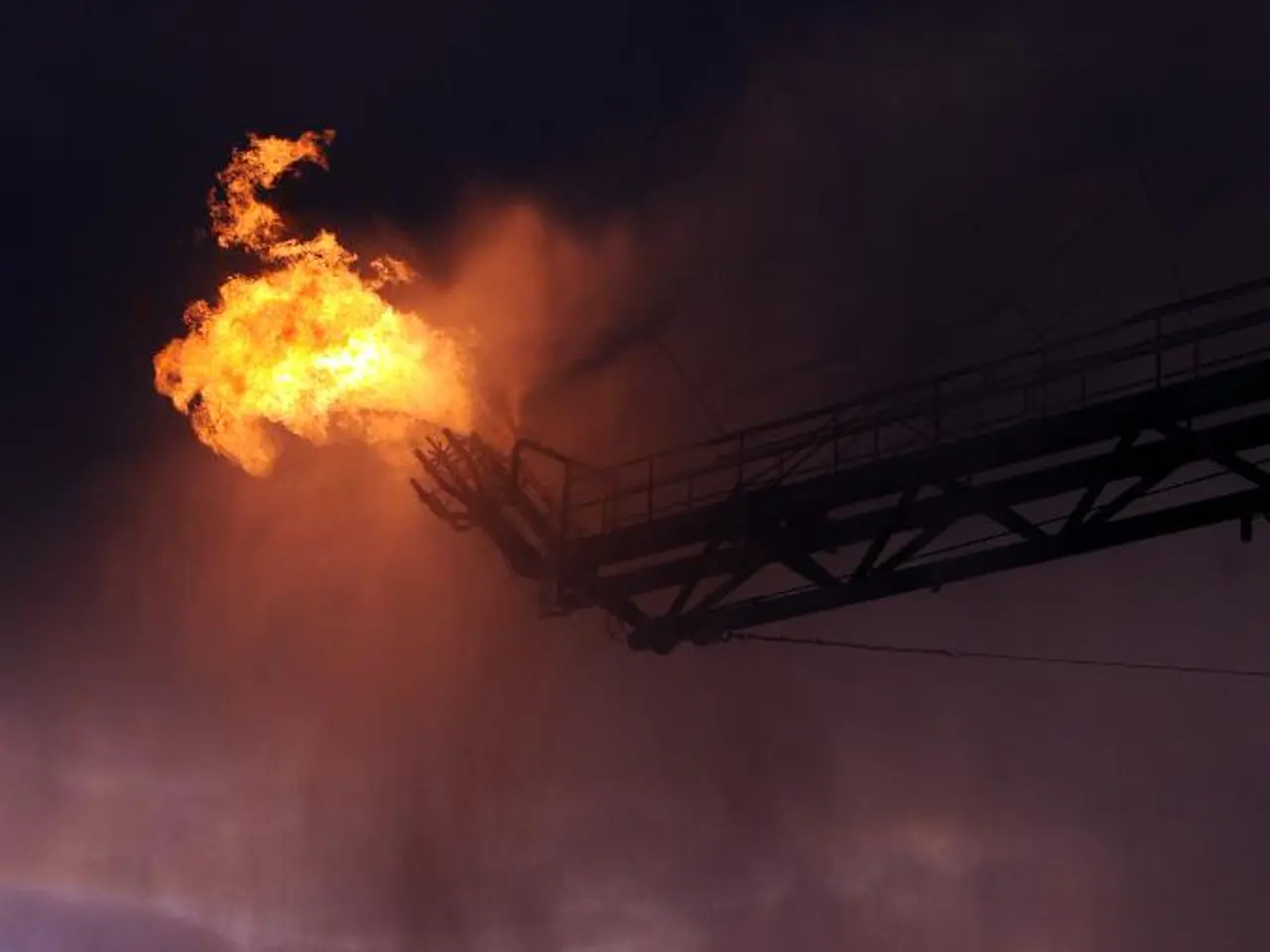Demonstration Against the 'Climate Catastrophe Culprit' – EWE Provides Gas from Borkum - Demonstrations against "massive contributors to climate change" - EWE delivers Borculum gas
In a move that has sparked debate among climate activists and environmentalists, Dutch energy company One-Dyas has announced that German energy firm EWE will purchase the offshore gas extracted in German territorial waters. This development comes as the federal cabinet recently approved a treaty with the Netherlands, allowing for the exploration of cross-border gas fields in the North Sea.
However, the legal status of One-Dyas and EWE's operations off the island of Borkum remains unclear, with specific details about their permits and approvals not yet available. The Greens in the Bundestag have renewed their criticism of gas extractions, calling for a stop to all gas extractions, while climate activists from Fridays for Future are protesting against offshore gas extraction off the island of Borkum.
One-Dyas plans to extract around 0.5 billion cubic meters of natural gas this year, with one-third of that amount being extracted in Germany. The company has reportedly signed a supply agreement with EWE, but the extraction in German waters has not yet been approved. A coalition of environmental organizations is currently suing the permit granted by the Lower Saxony State Agency for Mining, Energy and Geology (LBEG) at the Higher Administrative Court in Lüneburg.
One-Dyas began gas extraction in late March, initially in a test phase, with a drilling platform constructed approximately 20 kilometers northwest of Borkum. The decision regarding the extraction is still pending, with both the Lower Saxony State Office for Water Management, Coastal and Nature Conservation (NLWKN) and One-Dyas able to appeal to the Lower Saxony Higher Administrative Court.
Environmentalists are arguing with One-Dyas over the laying of a power cable through the North Sea, with which One-Dyas wants to supply its drilling platform with wind power from the neighboring offshore wind farm Riffgat. However, the court has questioned the necessity of the power cable, stating that there are alternative power supply methods such as gas generators currently in use.
One-Dyas CEO Chris de Ruyter van Steveninck stated that as long as there is a demand for natural gas, domestic gas production is the best option. EWE CEO Stefan Dohler referred to the energy security provided by North Sea gas. Meanwhile, the German Environmental Aid (DUH) has criticized the supply agreement between energy supplier EWE and the gas company.
The court's decision is not yet legally binding, and the future of One-Dyas and EWE's operations in the North Sea remains uncertain. The UK's recent guidance for environmental impact assessments, which requires considering the environmental impact of burning extracted oil and gas in offshore projects, could potentially impact North Sea operations, although it does not specifically mention One-Dyas or EWE.
In Germany, the Greens have submitted a motion in the Bundestag with the aim of ending gas extractions in Germany, limiting existing permits until 2030, and not permitting new gas drilling. The fate of One-Dyas and EWE's operations off the island of Borkum will likely be closely watched as this debate continues.
- Vocational training in environmental science, focusing on climate-change and renewable energy, is crucial for the next generation of policymakers and industrial leaders, as they grapple with the complexities of the ongoing debate surrounding gas extractions in EC countries, such as Germany and the Netherlands.
- As the Netherlands and Germany navigate the legalities of cross-border gas field exploration in the North Sea, financing and investment in the energy sector, particularly in renewable energy, are becoming increasingly significant topics in the realm of politics and general news.
- In the midst of protests from climate activists like Fridays for Future, One-Dyas' attempts to lay a power cable through the North Sea for its drilling platform, aimed at sourcing wind power from the Riffgat offshore wind farm, has faced criticism from environmentalists, calling for alternative power supply methods.
- Amidst the heated discussions about offshore gas extraction and the permits required for the operations, the importance of science in understanding the environmental impacts of such practices, including the potential consequences of burning extracted oil and gas, must not be underestimated.
- As the court's decision regarding One-Dyas and EWE's operations in the North Sea remains uncertain, the influence of policy-and-legislation on the future of the energy industry in EC countries and the broader impact on climate-change is a crucial concern for environmentalists, industry leaders, and everyday citizens alike.




